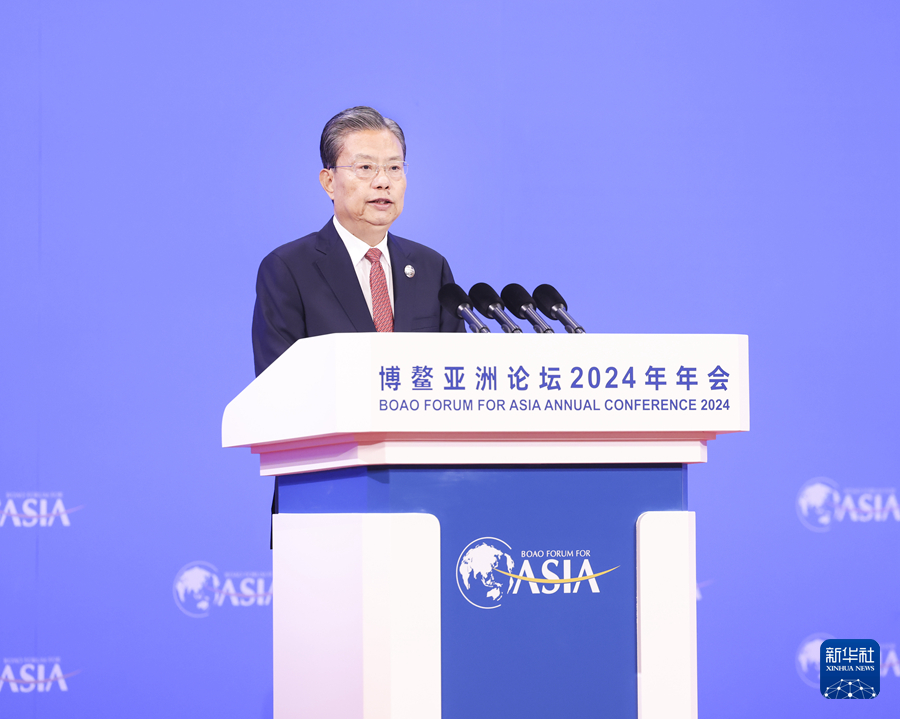The Boao Forum for Asia (BFA) held its 2024 iteration of the conference in the town of Boao, Hainan Province, from March 26th to 29th. The forum was created in 2001 and was designed to promote “positive energy” for the development of the Indo-Pacific region and the world and to create an “Asian Forum similar to the World Economic Forum in Davos, Switzerland. China also created the forum to have a space that is “truly from the perspective and for the benefit of Asia,” dedicated to the discussion of Asian issues, and “aimed at enhancing cooperation and exchanges among Asian countries, and between Asian countries, and other parts of the world.”
The theme for this year’s forum was ‘Asia and the World: Common Challenges, Shared Responsibilities.’ Chinese Communist Party’s (CCP) Politburo Standing Committee member and National People’s Congress Standing Committee Chairman, Zhao Leji, delivered a speech titled ‘Working Together to Meet Challenges and Create a Better Future for Asia and the World’ during the opening plenary for the forum on March 28th.
Zhao’s Speech
Zhao started the speech by saying he was very happy to “gather together with all my old and new friends” to attend the 2024 BFA conference. He then expressed warm congratulations on the convening of the annual meeting on behalf of the Chinese government and extended his sincere welcome to the guests attending the meeting. Furthermore, Zhao expressed his “heartfelt thanks” to the attendees for their “long-term concern and support for China’s development.” Zhao pointed out that today’s world is going through an “accelerated transformation unseen in a century.” He then said that “the world economy is recovering sluggishly, problems and conflicts are emerging one after another, hegemony and bullying are causing serious harm, and peace and development are facing severe challenges.”
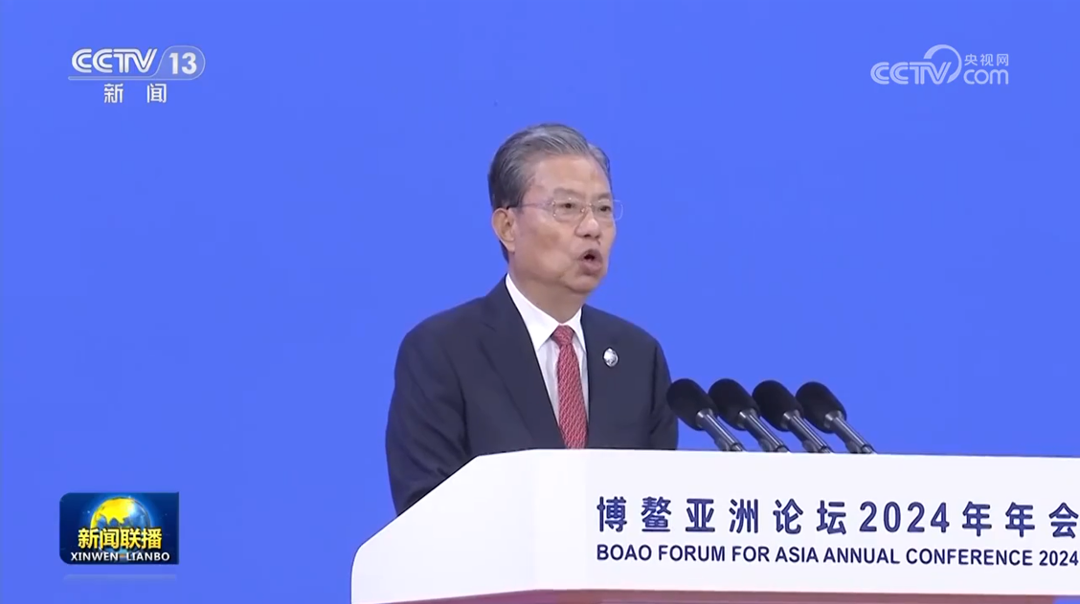
Zhao posed the question, should we [the Indo-Pacific region] strengthen cooperation and unity and work together to deal with various risks and challenges, or “should we adopt a zero-sum mentality and push the world into division and confrontation?” There are two choices and two paths that are related to mankind’s future and the future of the world. Zhao then pointed out that the conference’s theme is ‘Asia and the World: Common Challenges, Common Responsibilities’ that has “strong practical significance.”
China’s answer to the question ‘where is humanity going?, is to work together to develop a community with a shared future for mankind. Zhao said that “Chinese President Xi Jinping has pointed out on many international occasions that building a community with a shared future for mankind means that the future and destiny of every country are closely linked.” He then said that the planet is built into a harmonious family, and the concept stems from the “general consensus and expectations of the international community” along with China’s responsibility as a major country. This concept, Zhao argued, represents the country’s “contribution to humanity working together to protect their homes and create a better future.”
China’s initiative to build “a community with a shared future for mankind has expanded from a Chinese initiative to a global endeavor, from a beautiful vision to substantive actions, and from an idea to a scientific system over the last ten plus years,” Zhao said. The country advocates for an equal and orderly multipolar world and inclusive economic globalization, insisting that all countries, big and small, “are equal.” China also calls on the countries to transcend the outdated thinking of “bloc confrontation and zero-sum games, practice true multilateralism, and jointly build an open global economy. Zhao pointed out that China proposed and implemented the high-quality Belt and Road Initiative (BRI), the Global Development Initiative (GDI), the Global Security Initiative (GSI), and the Global Civilization Initiative (GCI). These initiatives, Zhao argued, brought high dividends of global prosperity and stability and built concrete benefits for people’s livelihoods and well-being.
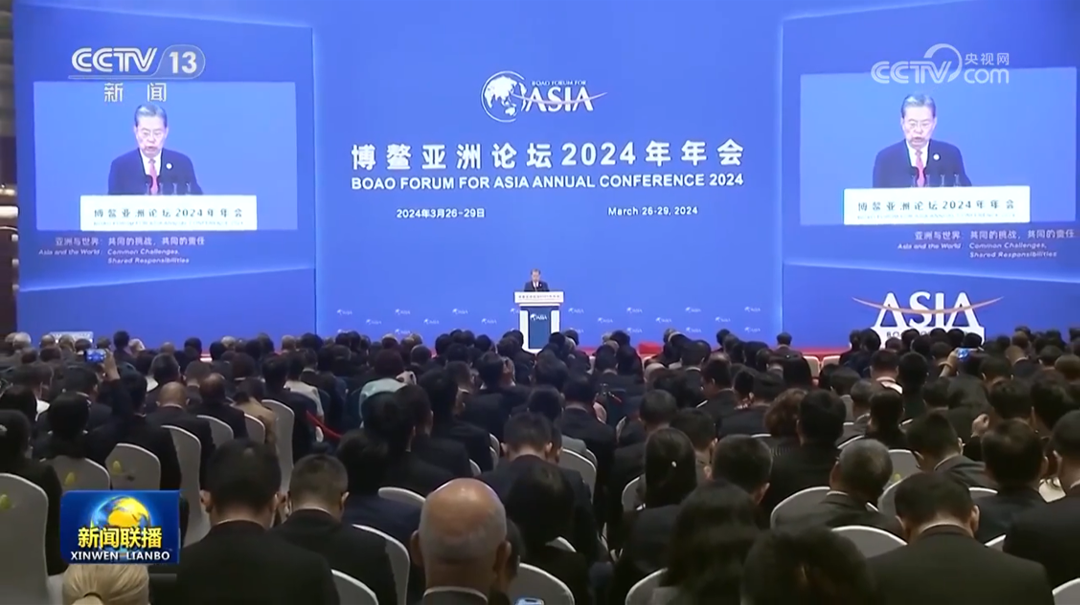
Zhao pointed out that the Five Principles of Peaceful Coexistence were proposed in the region seventy years ago. Furthermore, he said that the people of the region deeply cherish the value of peace and understand that development has not come easily since they have gone through hot and cold wars, hardships, and tribulations. It is important that the Indo-Pacific region “hold high the banner of a community with a shared future for mankind and jointly construct an Asian community with a shared future.” Zhao also urged attendees from the various regional countries to work together for an amicable, beautiful, harmonious, peaceful, prosperous, safe, and secure Asian home. He then explained how the five principles could be used to benefit the region and the world if the countries chose to abide by them.
He first posed that the region “should work together to maintain security in Asia and contribute positive energy to world peace and stability.” History and reality both illustrate that peace and stability are the “common aspirations of Asian people, the greatest consensus of Asian countries, and the prerequisite for Asia’s development.” In the face of complex, intertwined global security threats, Zhao argued that the region should implement the GSI, follow common, comprehensive, cooperative, and sustainable security, and reject the Cold War mentality and bloc confrontation.” He also argued that the region should also “oppose power politics and hegemonic acts and maintain a regional order that accommodates the interests and needs of all parties. Zhao said that the region must also keep the future of long term peace and security in the Indo-Pacific region in “our own hands” and pass the “torch of peace” from generation to generation.
Zhao then said the region should work together “to promote Asia’s development and provide enormous opportunities for global economic recovery.” Today, the Indo-Pacific is the most dynamic and promising region in the world, accounting for 40 percent of global GDP and contributing to approximately 70 percent of global growth. However, Zhao argued that “in the face of a global economy that has been in the doldrums for some time,” the region should jointly implement the GDI. He also argued that the region must “deepen mutually beneficial cooperation across the board, seize the opportunities in the new round of technological revolution and industrial transformation, cultivate and strengthen new growth drivers, and promote green, low-carbon, and sustainable development to inject strong impetus from Asia into global economic recovery.
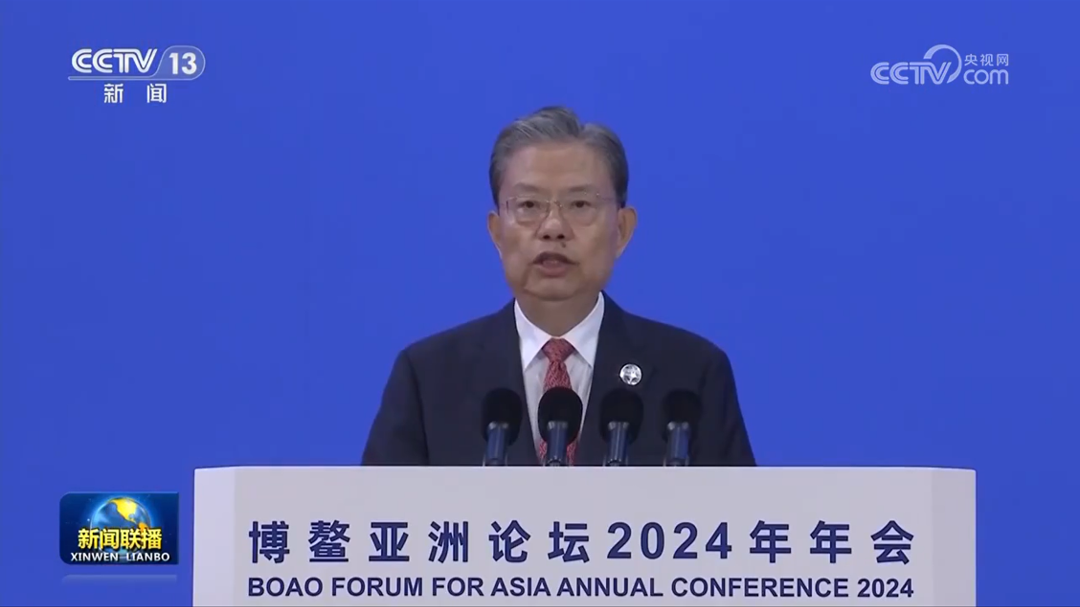
He then said the regions should jointly work together to champion cooperation in Asia and build broad consensus for international solidarity and coordination. Asian countries have the fine tradition of helping each other in trying times, and together the region can overcome one difficulty after another on their road to development. Zhao said that “in the face of clamors for division and confrontation, it is essential that we stay independent, seek strength through unity, and self-reliance.” He then argued that the region “should jointly oppose unilateralism and extreme egoism, oppose picking sides and bloc confrontation, and prevent this region and the world from becoming an arena of geopolitical competition.”
Zhao then urged the region to work together to advance openness in Asia and build synergy for a world of “win-win cooperation.” He then pointed out that “a review of the course of human development tells us that openness brings progress while isolation leaves one behind.” In today’s world, the economic globalization trend is irreversible, and no country is able to develop itself behind closed doors. Zhao said it is imperative that the region “work together for win-win outcomes, jointly implement the Regional Comprehensive Economic Partnership (RCEP), and pursue high-quality BRI cooperation.” Furthermore, he also said it is imperative to advance negotiations on upgrading the China-ASEAN Free Trade Area 3.0 agreement and build a closer and more open regional community to build a common regional market that is more “close-knit and more open.” The region must also oppose trade protectionism and all forms of barriers and decoupling practices, share opportunities by opening up, and seek win-win outcomes through cooperation.
The region should jointly carry forward Asian civilizations and provide a constant drive for exchanges and mutual learning of world civilizations, argued Zhao. He then quoted Xi as saying, “to meet our common challenges and create a better future for all, we look to culture and civilization to play their role, which is as important as the role of economy, science, and technology.” Furthermore, he said the region needs to implement the GCI, jointly advocate respect for various civilizations, and promote the common values of humanity. He also said the region should encourage different civilizations to live in harmony, learn from each other, and help each other succeed. Zhao then said that the region “should promote mutual understanding and affinity among Asian peoples and the world, as well as share the benefits of the progress of civilizations.
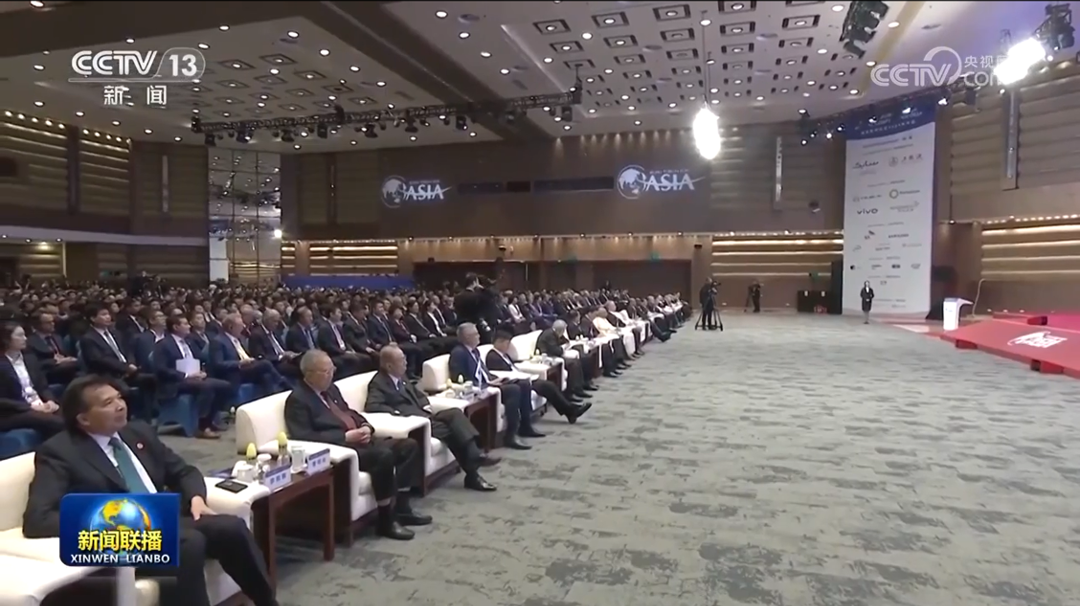
Zhao then discussed how the recently concluded Two Sessions “set the goals, tasks, policies, and measures for China’s economic and social development this year.” The meeting also conveyed confidence that China’s economy will continue to rebound and will continue to improve in the long term. Zhao also highlighted that China’s economic growth rate in 2023 was 5.2 percent, and the expected growth target for 2024 is about 5 percent, which continues to lead among the world’s major economies. He also said that China is “comprehensively promoting Chinese-style modernization with high quality development, which will inject strong impetus into the recovery of the world economy and provide more opportunities for the development of other countries, especially the development of its Asian neighbors.” Zhao then outlined four types of development China will use to increase development opportunities for the countries in the Indo-Pacific region.
China will persist in innovative development since innovation is a powerful driving force for development. Zhao said that the country “adheres to the innovation-driven development strategy, uses scientific and technological innovation to promote industrial innovation, and accelerates the development of new productive forces.” He pointed out that investment in high-tech industries has maintained double-digit growth for several consecutive years and led to the development of approximately 400,000 high-tech enterprises. China’s exports of the ‘three new products’ of new energy vehicles, lithium batteries, and photovoltaic products have grown rapidly.
Zhao said that the digital economy has accelerated its development, and the 5G user penetration rate has exceeded 50 percent. China is also willing to enhance “scientific and technological innovation cooperation with other countries to stimulate more innovation vitality and cultivate new economic growth points.” Zhao then urged the region to jointly implement the global artificial intelligence governance initiative and promote the healthy, safe, and orderly development of global artificial intelligence. Zhao then urged the region to jointly implement the global artificial intelligence governance initiative and promote the healthy, safe, and orderly development of global artificial intelligence.
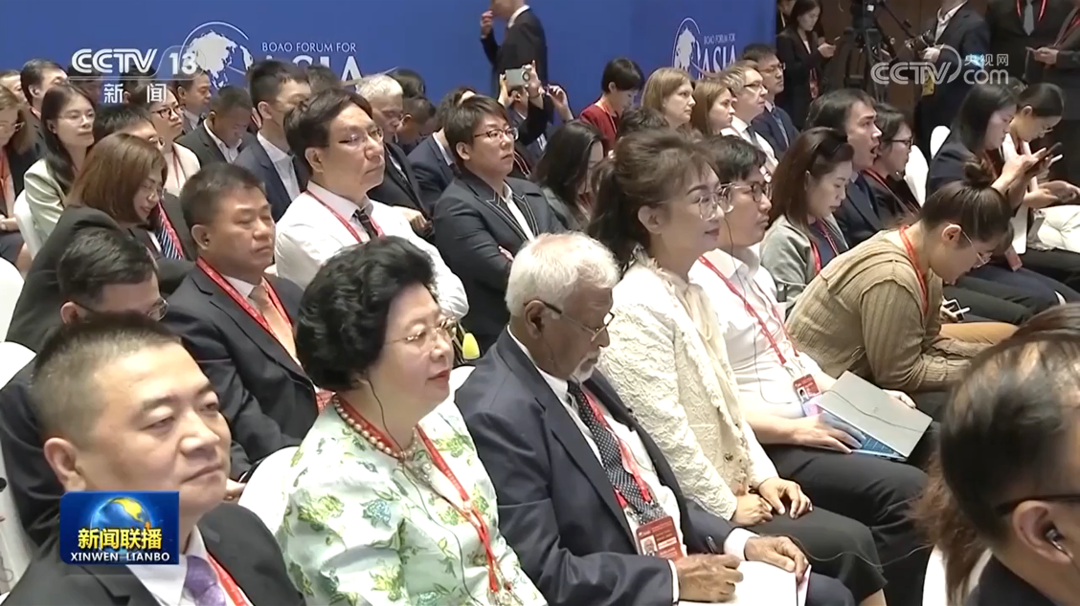
The country will adhere to open development because “openness is a distinctive symbol of contemporary China.” Zhao said that the country’s “open door will only open wider and wider and will never be closed.” He then said that China will “proactively align with high-standard international economic and trade rules and create a market-oriented, legal and international first-class business environment.” The country would also continue to reduce the negative list for foreign investment access, comprehensively abolish restrictions on foreign investment access in the manufacturing sector, enhance the convenience for foreigners to work, study, and travel in China, and implement national treatment for foreign enterprises. Zhao said that Hainan is developing a “free trade port with Chinese characteristics with world influence and to create a new high level of China’s high-level system-oriented opening up that will take the country to new heights.” He then said that all companies are welcome to invest and start businesses in Hainan.
The country will adhere to shared development because China “is already the main trading partner of more than 140 countries and regions, a major source of investment for a growing number of countries, and one of the most important investment destinations for most countries.” Zhao stated that in the next five years, China’s import and export of goods is expected to exceed a cumulative total of $32 trillion (163 trillion yuan) in total, and the potential of the ultra-large market with a population of approximately 1.4 billion people will continue to be released. Investing in China is investing in the future, according to Zhao. China sincerely welcomes all countries in the world to board the express train of China’s development and work together to realize the modernization of the world with peaceful development, mutually beneficial cooperation, and common prosperity.
Zhao then quoted a Chinese saying: “if you take advantage of the wisdom of the crowd, you will be able to conquer anything; if you use the strength of the crowd, you will be able to defeat everything.” Human beings live in the same global village, and all countries in the world are on the same ship with a shared destiny. He said that “in the face of severe and complex risks and challenges around the world, we must strengthen our confidence and move forward together to promote the building of a community with a shared future for mankind and create a better future for Asia and the world.” Zhao then ended the speech by wishing the BFA 2024 Annual Conference a complete success.
Analysis
Zhao’s speech during the opening plenary illustrates how China will use forums such as the BFA to increase its influence through various means, such as economic development and sharing green energy technologies. More importantly, however, the speech also indicates that China is beginning to actively work to realign the region away from outside powers and towards the country. During his speech, Zhao said that the country is promoting Chinese-style modernization with high quality development since that would provide various opportunities for its “Asian neighbors.”
Zhao specifically mentioned China’s efforts to reduce its carbon emissions and become carbon neutral by 2060 to win favor with the countries since some, such as Thailand and Vietnam, are worried about how climate change would affect their countries. These countries viewed Zhao’s comments favorably and would be open to increasing their relations with China in green industries. Furthermore, some countries would also be receptive to increasing relations with China to receive access to technologies such as lithium batteries and photovoltaic cells. For example, Indonesia and Vietnam would be especially receptive to these technologies since they would increase their energy production and storage capacities.
Regarding gaining influence through economic development, Zhao framed it in the context of the region working together to promote the region’s economic development through the implementation of the GDI. He first mentioned how the region’s economic significance is in relation to the global economy, which is made up of approximately 40 percent of global GDP growth and 70 percent of global growth. However, Zhao used these statistics to urge the countries of the Indo-Pacific region to implement the GDI to enable it to economically recover. By implementing the initiative, the region would have the ability to economically recover from the economic downturn that is affecting the rest of the globe.
The GDI’s implementation would mean that the region would become more economically aligned with China than it currently is. Furthermore, China would use the GDI as a vehicle to decrease the region’s reliance on outside powers for economic and trade relations over time. Zhao also urged the region to work together to enable win-win cooperation through the implementation of the BRI and the RCEP. The reason why he called for the region to implement the BRI and the RCEP was to also increase the region’s economic and trade integration with China, like the GDI.
Zhao’s comments about the Indo-Pacific region becoming more self-reliant indicate China wants the region to lessen its independence from outside countries for security purposes. The reason why is that China can become the region’s top choice in defense and security, or at least make it difficult for the United States and other countries to increase security relations. Zhao’s comments that the region should be independent and seek strength through unity and self-reliance instead of picking sides, adhering to a Cold War mentality, and confrontation illustrate this. Furthermore, his call for the countries to oppose unilateralism and prevent the region from becoming embroiled in geopolitical competition is the country wanting to prevent the United States and other countries from increasing relations with the countries. Several countries, such as the Philippines and Japan, significantly increased their defense and security relations with the United States and other countries in the last year.
China views these agreements negatively since they are in response to their actions that attempt to change the status quo of the region’s security in its favor. The country also views the agreements as the Indo-Pacific countries picking sides and forming an alliance bloc to prevent China’s rise, regardless of whether the countries feel threatened by China’s actions in the region. Zhao’s comments also illustrate the negative view China has regarding alliance blocs, especially toward weaker countries such as those found in the Indo-Pacific region. China’s negative view of alliances stems from the understanding that alliances decrease the country’s ability to force countries into agreements that benefit China since the weaker countries can draw on the support of other countries.

